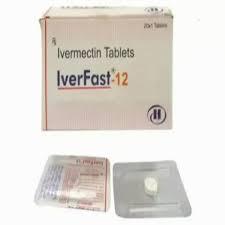ALBENDAZOLE + IVERMECTIN
Albendazole: Albendazole is an anthelmintic drug used to treat infections caused by parasitic worms. It is commonly used to treat conditions such as neurocysticercosis (infection caused by pork tapeworm) and hydatid disease (infection caused by dog tapeworm).
The mechanism of action of Albendazole involves inhibiting the uptake of glucose by the parasites, leading to their depletion of glycogen stores. This results in decreased ATP production, leading to immobilization and ultimately death of the parasite.
The recommended dose of Albendazole varies depending on the condition being treated. For neurocysticercosis, the usual dose is 400 mg taken twice daily with meals for 8 to 30 days. For hydatid disease, the dose is typically 400 mg twice daily for 28 days, followed by a 14-day rest period, and then repeated for a total of 3 treatment cycles.
As with any medication, Albendazole can cause side effects. Common side effects include nausea, vomiting, abdominal pain, headache, dizziness, and skin rash. In rare cases, more serious side effects such as liver dysfunction, bone marrow suppression, and allergic reactions can occur. It is important to consult a healthcare professional if any concerning symptoms develop while taking Albendazole.
Ivermectin: Ivermectin is a medication that is primarily used for the treatment of parasitic infections. It is particularly effective against parasites such as roundworms, threadworms, and certain types of mites.
The mechanism of action of ivermectin involves interfering with the nervous system of parasites, leading to their paralysis and subsequent death. This drug works by binding to specific receptors in nerve cells, resulting in the inhibition of nerve impulses and muscle contraction in the parasites.
Ivermectin is available in several different forms, including oral tablets, topical creams, and lotions. The specific dose of ivermectin depends on the type and severity of the infection being treated, as well as the individual’s weight and overall health. It is essential to follow the instructions provided by the healthcare provider or the directions on the packaging.
As for side effects, common ones may include dizziness, headache, nausea, diarrhea, and stomach pain. These side effects are usually mild and temporary. In some cases, especially with higher doses used for other conditions, more serious side effects like confusion, seizures, and liver problems may occur.
It is crucial to note that while ivermectin has been used successfully to treat parasitic infections, it is not approved for use against viral infections such as COVID-19. The use of ivermectin for off-label purposes should be done under medical supervision and guidance.


